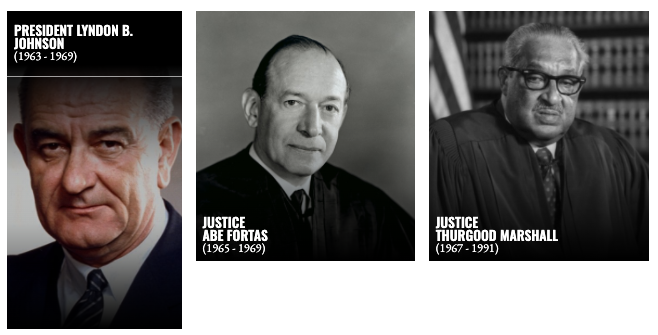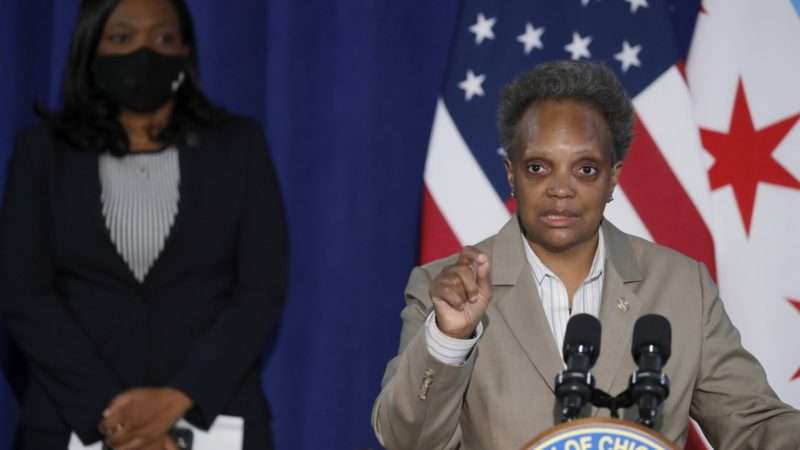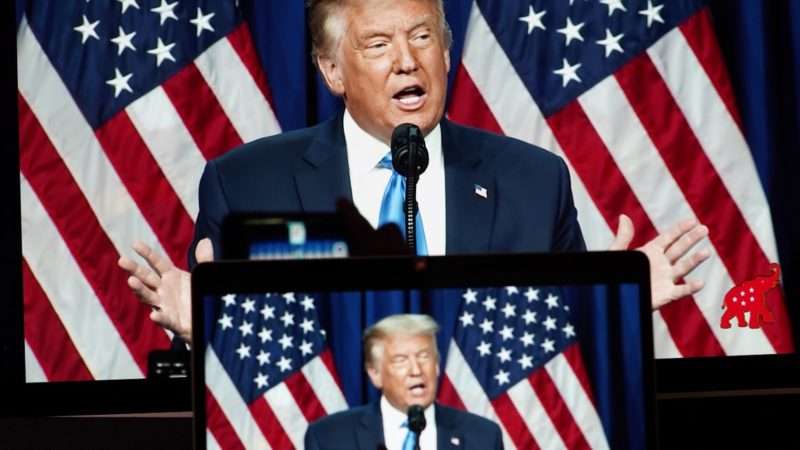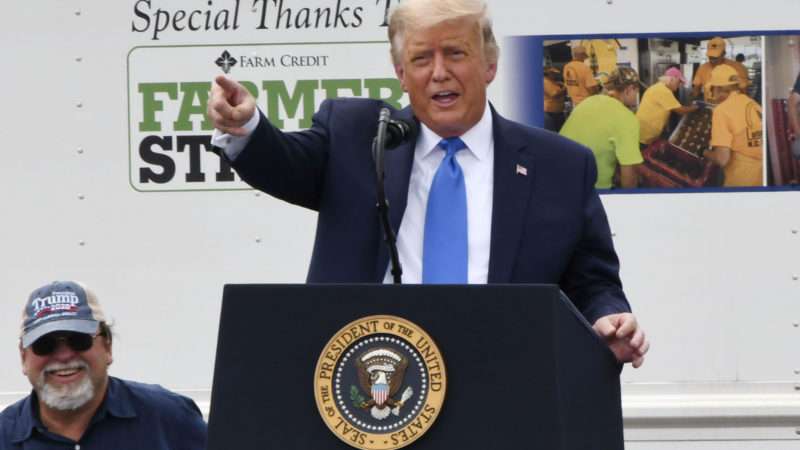In 2008, Kamala Harris signed on to a District Attorneys’ friend-of-the-court brief in D.C. v. Heller, the Supreme Court’s leading Second Amendment case. Of course, she may have changed her views on the Second Amendment since then (perhaps in light of precedents such as Heller); and she may have different personal views than the ones she expressed as a D.A. (though note that she signed on to the brief as a signatory, and not just as a lawyer for the signatories). But this brief likely tells us something about her views on the Second Amendment.
[1.] To begin with, the brief urged the Court to reverse the decision below, and thus to reinstate D.C.’s handgun ban. Thus, Harris’s view in that case was that the Second Amendment doesn’t preclude total bans on handgun possession.
[2.] The brief also came at a time when the great majority of federal courts (including the Ninth Circuit, which covered Harris’s jurisdiction, San Francisco) viewed the Second Amendment as not securing any meaningful individual right of members of the public to personally keep and bear arms. Rather, those courts viewed the Second Amendment as endorsing (to quote the then-existing Ninth Circuit precedent, which the brief itself later cited),
the “collective rights” model, [which] asserts that the Second Amendment right to “bear arms” guarantees the right of the people to maintain effective state militias, but does not provide any type of individual right to own or possess weapons.
Under this theory of the amendment, the federal and state governments have the full authority to enact prohibitions and restrictions on the use and possession of firearms, subject only to generally applicable constitutional constraints, such as due process, equal protection, and the like.
And the brief supported that majority view among federal courts: Affirming the D.C. Circuit decision, which rejected the collective rights model and recognized an individual right to own guns,
could inadvertently call into question the well settled Second Amendment principles under which countless state and local criminal firearms laws have been upheld by courts nationwide.
Thus, Harris’s view in that case was thus that the “collective rights” view of the Second Amendment was correct, since that was the “settled Second Amendment principle[]” in lower federal courts at the time.
[3.] Now the brief also said that “The District Attorneys do not focus on the reasons for the reversal [that it was urging], however, leaving these arguments to Petitioners and other amici.” Nonetheless, it argued that,
For nearly seventy years, courts have consistently sustained criminal firearms laws against Second Amendment challenges by holding that, [among other things], (i) the Second Amendment provides only a militia-related right to bear arms, (ii) the Second Amendment does not apply to legislation passed by state or local governments, and (iii) the restrictions bear a reasonable relationship to protecting public safety and thus do not violate a personal constitutional right. The lower court’s decision, however, creates a broad private right to possess any firearm that is a “lineal descendant” of a founding era weapon and that is in “common use” with a “military application” today….
The federal and state courts have upheld state and local firearms laws, as well as criminal convictions thereunder, against Second Amendment challenges on three primary grounds. In holding the D.C. laws at issue to be unconstitutional, the decision below undermines each of these grounds, which also could be cast into doubt by an affirmance in this case.
First, courts nationwide have upheld criminal gun laws on the basis that the Second Amendment provides only a militia-related right to bear arms. See, e.g., Scott v. Goethals, No. 3-04-CV-0855, 2004 WL 1857156, at *2 (N.D. Tex. Aug. 18, 2004) (affirming conviction under Texas Penal Code § 46.02 for unlawfully carrying a handgun because Second Amendment does not provide a private right to keep and bear arms); Silveira v. Lockyer, 312 F.3d 1052,1087 (9th Cir. 2003) (holding that California residents challenging constitutionality of California’s Assault Weapons Control Act lacked standing because Second Amendment provides militia-related right to keep and bear arms); State v. Brecunier, 564 N.W.2d 365, 370 (Iowa 1997) (upholding firearm sentence enhancement because defendant “had no constitutional right to be armed while interfering with lawful police activity”)….
The lower court’s sweeping reasoning undermines each of the principal reasons invoked by those courts that have upheld criminal firearms laws under the Second Amendment time and again. First, under the lower court’s analysis, the Constitution protects a broad “individual” constitutional right, one that is not militia-related, to possess firearms….
This certainly seems to me like approval of the principle listed as (i) in the brief, which is the view that “the Second Amendment provides only a militia-related right to bear arms.”
Now perhaps this passage could be read as simply describing what courts were doing, or as suggesting that the Supreme Court could either adopt principle (i) or perhaps some of the other principles instead. But it certainly sounds to me like an endorsement of the “only a militia-related right to bear arms” view, especially since that’s the lower federal courts’ “well settled Second Amendment principle[]” to which the brief had earlier alluded (see item 2 above).
Plus principle (ii) is an endorsement of the view (rejected by the Court two years later in McDonald v. City of Chicago) that states and localities can institute whatever gun bans they want (even total gun bans) without violating the Second Amendment. And even if we focus on principle (iii), under which gun laws are constitutional if they “bear a reasonable relationship to protecting public safety,” the brief was supporting a total handgun ban—if that is permissible on the theory that it “bear[s] a reasonable relationship to protecting public safety,” then I would think a total ban on all guns would be, too.
The brief closed with a suggestion that “the Court exercise judicial restraint and explicitly limit its decision to the three discrete provisions of the D.C. Code on which it granted certiorari” (the handgun ban, a licensing requirement, and the requirement that guns be stored disassembled or bound with a trigger lock), because “This would avoid needless confusion and uncertainty about the continued viability and stare decisis effect of this Court’s—and other courts’—prior Second Amendment jurisprudence.”
This passage doesn’t expressly urge the Court to adopt a particular line of reasoning. But, again, the first principle that the brief mentioned, and the one most clearly consistent with lower federal courts’ “prior Second Amendment jurisprudence,” was that the Second Amendment didn’t secure an individual right that ordinary citizens could exercise in their daily lives. It sounds like that is at least one approach that the brief is endorsing.
So, to summarize:
- Kamala Harris, as D.A., definitely endorsed the view that a total handgun ban didn’t violate the Second Amendment.
- She also seemed to endorse the view that the Second Amendment secures only a “collective” or “militia-related” right, and not the individual right that the Court ultimately recognized in D.C. v. Heller.
An article by Cam Edwards (Bearing Arms) on Aug. 11 made a similar argument in concluding that”Kamala Harris Doesn’t Think You Have the Right To Own a Gun” (to quote its original title), but an Agence-France Press “Fact Check” on Aug. 18 labeled that claim “false.” I find the “Fact Check” quite unpersuasive, at least as to the specific question of Harris’s views on the right to own a gun.
AFP writes, “Rather than outright opposition to gun ownership, Harris has supported legislation aimed at increasing safety.” It may well be that Harris wouldn’t promote a statute banning guns outright. But her brief states that she thinks governments have the constitutional power to ban at least all handguns, and likely guns more generally.
AFP writes, “Nor has she called for the destruction of the Second Amendment, which says: ‘A well regulated militia, being necessary to the security of a free state, the right of the people to keep and bear arms, shall not be infringed.'” But she has endorsed, as I read it, the view that the Second Amendment doesn’t protect a normal individual right to own guns, rather protecting only a “collective right” under which states can limit gun ownership to members of a state-designated “militia.”
AFP goes on to say, “Legal scholars, however, say that although Harris supported the amicus brief, it is false to conclude from it that she believes—as the article claims—’you don’t have the right to own a gun'”:
“The brief in question is not about whether there is an individual right under the Second Amendment. It is about the crime-related consequences of invalidating the DC handgun law at issue in Heller,” Aziz Huq, of the University of Chicago Law School, told AFP by email. Huq studies how constitutional design interacts with individual rights and liberties.
Adam Winkler, a specialist in gun policy at the UCLA School of Law, made a similar argument.
“This statement is false,” he said of the article’s claim.
“The brief she supported argued that DC’s gun laws should be upheld but not because there was no right to own a gun,” Winkler said in an email to AFP.
“Rather, the brief argued that the laws should be upheld because there is a tradition of gun restrictions, and DC’s were reasonable regulations,” said Winkler, the author of “Gunfight: The Battle Over the Right to Bear Arms in America.”
Again, for the reasons I gave above, I think Profs. Huq and Winkler are mistaken. The brief does seem to endorse the collective rights view of the Second Amendment, under which there really is no right to own a gun. And, again, at the very least the brief endorses the view that all handguns could be banned, consistently with the Second Amendment.
Finally, the brief turns to another scholar:
The amicus brief which Harris joined argued “that at least as far as the Second Amendment is concerned, it doesn’t relate to private rights,” said [Jake] Charles, of the Duke Center for Firearms Law.
But he added: “I’m not sure it’s fair to claim that as her current position given that the Supreme Court decided in Heller that people do have that right, and I haven’t seen her questioning the Heller decision.”
Here, I agree that (1) the amicus brief does take that the Second Amendment doesn’t protect any “private rights,” and (2) we can’t be certain that this remains her view today. But it is at least plausible that her views about the subject haven’t changed, and that if she could participate in reshaping the Supreme Court, she would reshape it in favor of reversing the Heller decision, and moving the law back to a view under which “the Second Amendment … doesn’t relate to private rights.”

from Latest – Reason.com https://ift.tt/2FSrCpm
via IFTTT



